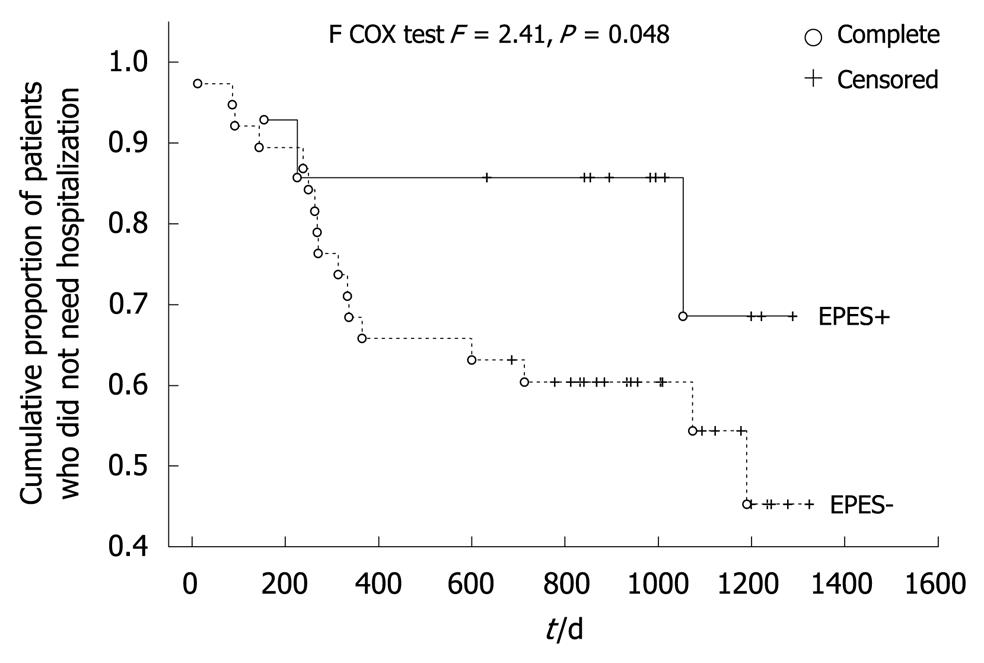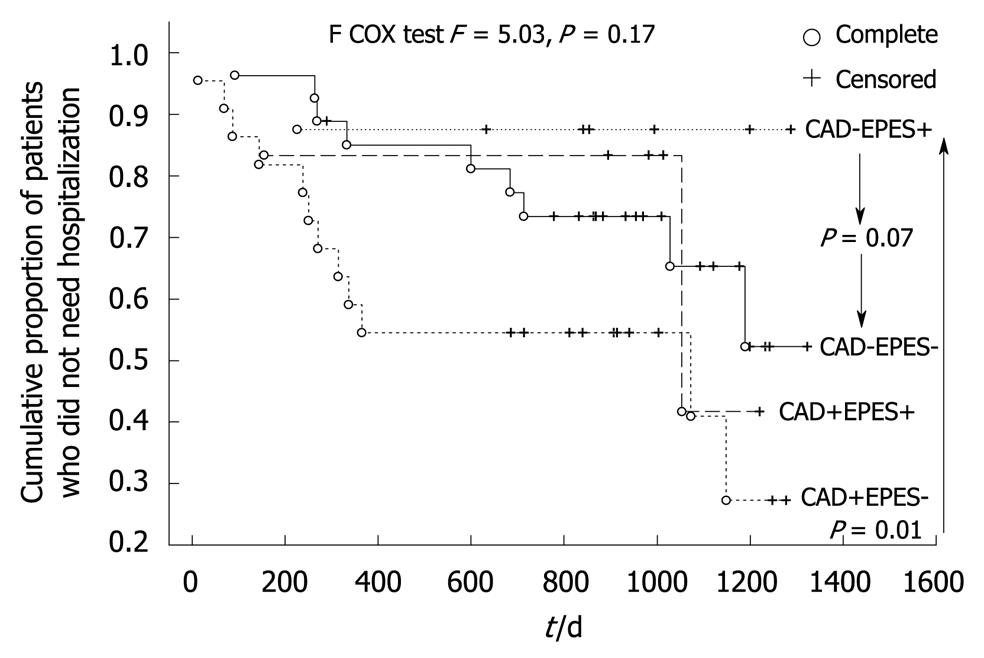Copyright
©2010 Baishideng Publishing Group Co.
World J Gastroenterol. Sep 21, 2010; 16(35): 4428-4435
Published online Sep 21, 2010. doi: 10.3748/wjg.v16.i35.4428
Published online Sep 21, 2010. doi: 10.3748/wjg.v16.i35.4428
Figure 1 Comparison of two Kaplan-Meier curves in patients with and without signs of exercise-provoked esophageal spasm.
EPES: Exercise-provoked esophageal spasm; EPES-: Patients, in whom the percentage of simultaneous contractions within the treadmill stress test did not exceed 55%; EPES+: Patients in whom the percentage of simultaneous contractions within the treadmill stress test exceeded 55%.
Figure 2 Comparison of four Kaplan-Meier curves in patients with and without signs of exercise-provoked esophageal spasm and a narrowing of coronary arteries > 50%.
EPES: Exercise-provoked esophageal spasm; CAD: Coronary artery disease; CAD+EPES-: Patients with significant (> 50%) coronary artery narrowing in coronary angiography, in whom the percentage of simultaneous contractions within the treadmill stress test did not exceed 55%; CAD+EPES+: Patients with significant (> 50%) coronary artery narrowing in coronary angiography, in whom the percentage of simultaneous contractions within the treadmill stress test exceeded 55%; CAD-EPES-: Patients without significant coronary artery narrowing in coronary angiography, in whom the percentage of simultaneous contractions within the treadmill stress test did not exceed 55%; CAD-EPES+: Patients without significant coronary artery narrowing in coronary angiography, in whom the percentage of simultaneous contractions within the treadmill stress test exceeded 55%.
- Citation: Budzyński J. Exercise-provoked esophageal motility disorder in patients with recurrent chest pain. World J Gastroenterol 2010; 16(35): 4428-4435
- URL: https://www.wjgnet.com/1007-9327/full/v16/i35/4428.htm
- DOI: https://dx.doi.org/10.3748/wjg.v16.i35.4428










